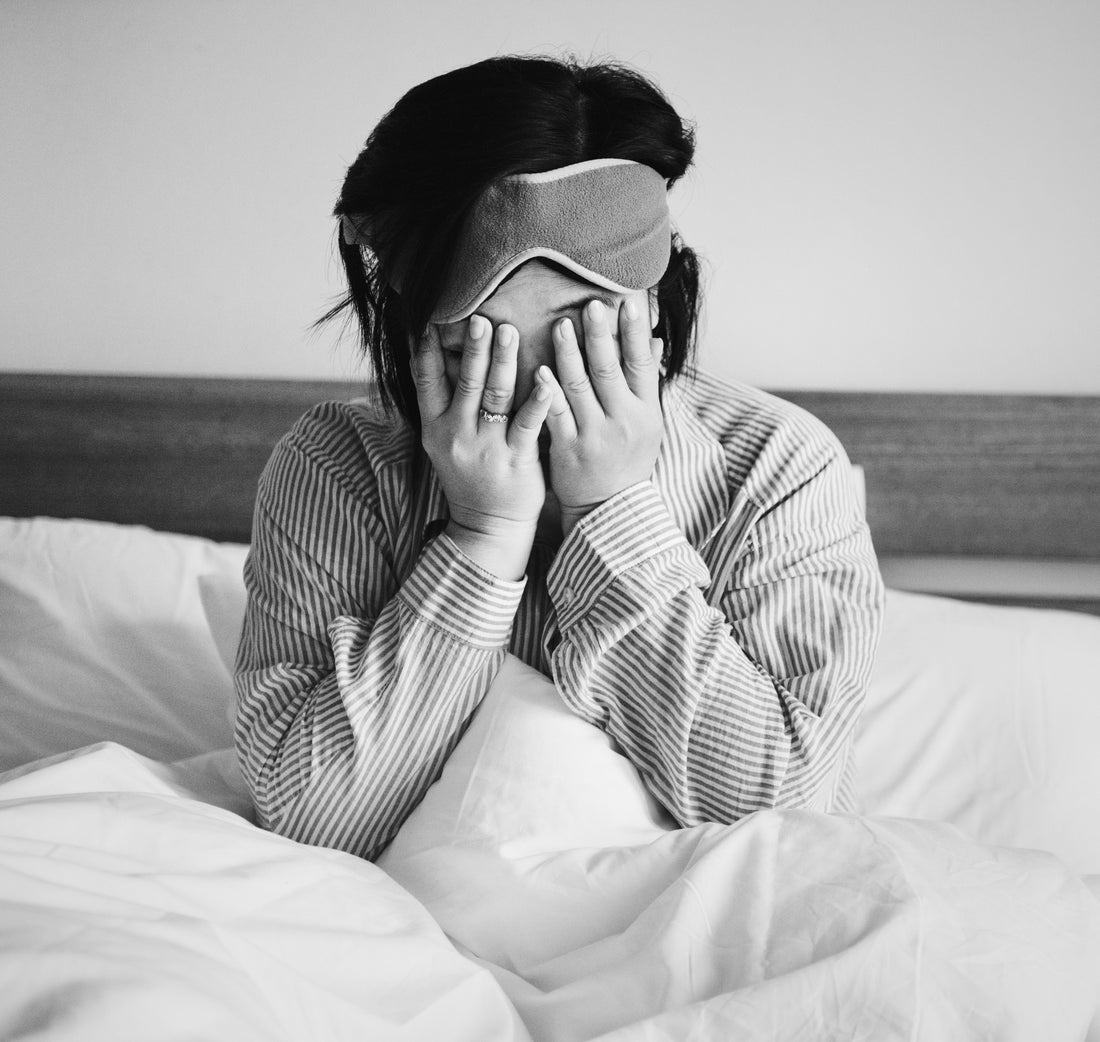
Sleep is a crucial aspect of overall health and well-being, playing a vital role in various physiological and psychological processes. However, millions of people worldwide suffer from sleep disorders that can significantly impact their quality of life.
Insomnia is one of the most common sleep disorders, characterized by difficulty falling or staying asleep or experiencing non-restorative sleep. It can be acute or chronic. It can be caused by a variety of factors, and it's often a complex interplay of physiological, psychological, and environmental elements. Some common causes of insomnia are:
· Stress and Anxiety: High levels of stress and anxiety, whether related to work, relationships, or other life events, can significantly impact sleep. Racing thoughts and worry may make it difficult for individuals to relax and fall asleep.
· Depression: Depression is closely linked to insomnia. Changes in sleep patterns, such as difficulty falling asleep or waking up too early, are common symptoms of depression.
· Medical Conditions: Certain medical conditions can contribute to insomnia, including chronic pain conditions (e.g., arthritis), respiratory disorders (e.g., asthma), neurological disorders, and hormonal imbalances.
· Medications: Some medications, such as certain antidepressants, antihypertensives, and stimulants, may interfere with sleep and contribute to insomnia as a side effect.
· Caffeine and Stimulants: Consuming caffeinated beverages or stimulants close to bedtime can interfere with the ability to fall asleep. Nicotine, found in tobacco products, is also a stimulant that can disrupt sleep.
· Poor Sleep Hygiene: Irregular sleep schedules, an uncomfortable sleep environment, and inconsistent bedtime routines can contribute to insomnia. Poor sleep hygiene practices can disrupt the body's natural sleep-wake cycle.
· Environmental Factors: Noisy or bright environments can make it challenging to fall and stay asleep. Disruptions such as light pollution, loud neighbors, or uncomfortable room temperature may contribute to insomnia.
· Irregular Work Schedule: Shift work, irregular work hours, or frequent changes in work schedules can disrupt the body's circadian rhythm, making it difficult to establish a consistent sleep pattern.
· Poor Diet and Eating Habits: Consuming heavy meals, spicy foods, or large amounts of liquid close to bedtime can lead to discomfort and indigestion, impacting sleep.
· Lack of Physical Activity: Sedentary lifestyles and a lack of regular physical activity can contribute to insomnia. Exercise is known to promote better sleep, but exercising too close to bedtime may have the opposite effect.
· Age-Related Changes: As individuals age, changes in sleep architecture and patterns may occur. Older adults may experience more fragmented sleep and have an increased likelihood of insomnia.
· Genetic Predisposition: Some individuals may have a genetic predisposition to insomnia. Family history can play a role in sleep disorders.
Insomnia is often a symptom of an underlying issue, and addressing the root cause is crucial for effective management. If insomnia persists or significantly impacts daily functioning, it's advisable to consult with a healthcare professional or sleep specialist for a thorough evaluation and appropriate intervention
Lifestyle Modifications for Better Sleep:
A. Sleep Hygiene: Practicing good sleep hygiene is essential for promoting healthy sleep. This includes maintaining a consistent sleep schedule, creating a comfortable sleep environment, and avoiding stimulants like caffeine and nicotine close to bedtime.
B. Regular Exercise: Engaging in regular physical activity can have positive effects on sleep quality. However, it's crucial to time exercise appropriately, avoiding vigorous activity close to bedtime.
C. Stress Management: Chronic stress can contribute to sleep disorders. Techniques such as meditation, deep breathing exercises, and progressive muscle relaxation can help manage stress and improve sleep.
Homeopathy and Sleep Disorders:
Homeopathy is a holistic system of medicine that aims to stimulate the body's self-healing mechanisms. It involves using highly diluted substances to trigger a healing response. Researches have reported potential benefits from homeopathic remedies. Homeopathic treatment is highly individualized, with practitioners considering a person's overall health, constitution, and specific symptoms. Consulting with a qualified homeopath is crucial for personalized and effective treatment.
Bibliography:
1. Bell IR, Howerter A, Jackson N, Aickin M, Baldwin CM, Bootzin RR. Effects of homeopathic medicines on polysomnographic sleep of young adults with histories of coffee-related insomnia. Sleep medicine. 2011 May 1;12(5):505-11.
2. Brooks AJ, Bell IR, Howerter A, Jackson N, Aickin M. Effects of homeopathic medicines on mood of adults with histories of coffee-related insomnia. Complementary Medicine Research. 2010 Oct 1;17(5):250-7.
3. Kaur H, Spurling BC, Bollu PC. Chronic Insomnia. [Updated 2023 Jul 10]. In: StatPearls [Internet]. Treasure Island (FL): StatPearls Publishing; 2023 Jan-. Available from: https://www.ncbi.nlm.nih.gov/books/NBK526136/
4. Naudé DF, Couchman IM, Maharaj A. Chronic primary insomnia: efficacy of homeopathic simillimum. Homeopathy. 2010 Jan;99(01):63-8.

